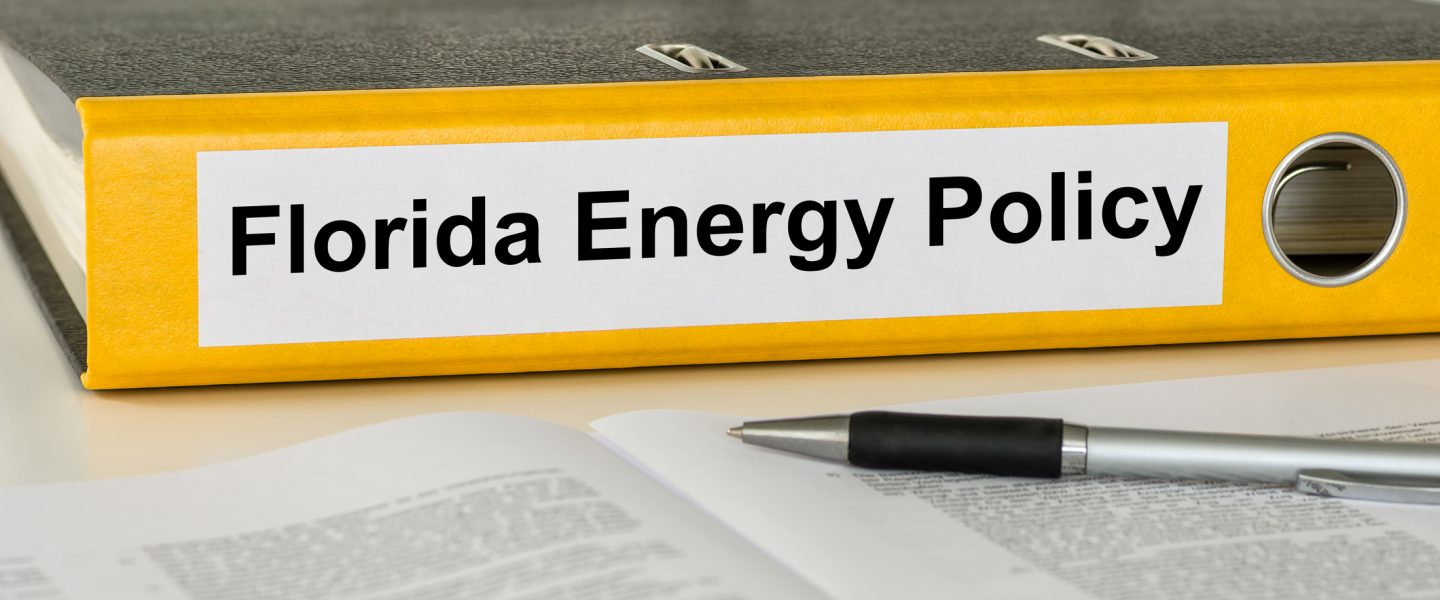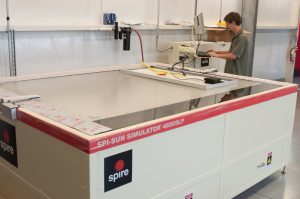Solar Access Laws
Florida Solar Rights Act
 Florida law forbids ordinances, deed restrictions, covenants, or similar binding agreements from prohibiting solar equipment use. Under this law, a homeowner may not be denied by “any entity granted the power or right in any deed restriction, covenant or similar binding agreement to approve, forbid, control, or direct alteration of property…” permission to install a solar collector, clothesline, or other energy device using renewable resources. Learn More.
Florida law forbids ordinances, deed restrictions, covenants, or similar binding agreements from prohibiting solar equipment use. Under this law, a homeowner may not be denied by “any entity granted the power or right in any deed restriction, covenant or similar binding agreement to approve, forbid, control, or direct alteration of property…” permission to install a solar collector, clothesline, or other energy device using renewable resources. Learn More.
Section 163.04, Florida Statute
Solar Rights Law for Condominiums
 This law establishes conditions for use of solar and energy efficient systems on common elements within association property.
This law establishes conditions for use of solar and energy efficient systems on common elements within association property.
Section 718.113, Florida Statutes
Maintenance; limitation upon improvement; display of flag; hurricane shutters.—
(7) Notwithstanding the provisions of this section or the governing documents of a condominium or a multicondominium association, the board of administration may, without any requirement for approval of the unit owners, install upon or within the common elements or association property solar collectors, clotheslines, or other energy-efficient devices based on renewable resources for the benefit of the unit owners.
Solar Easements
 Solar easements are the prevalent method of assuring solar access. Since there is no implied right to light and air, there must be statutory authority to create a solar easement. Solar easements are strictly voluntary, meaning you cannot force a property owner to grant one. Florida law enables the creation of a solar easement. Learn More.
Solar easements are the prevalent method of assuring solar access. Since there is no implied right to light and air, there must be statutory authority to create a solar easement. Solar easements are strictly voluntary, meaning you cannot force a property owner to grant one. Florida law enables the creation of a solar easement. Learn More.
Section 704.07, Florida Statute
Tax Exemptions
Solar Energy Sales Tax Exemption
 Florida law exempts solar systems and components from sales tax. This law doesn’t have an expiration date.
Florida law exempts solar systems and components from sales tax. This law doesn’t have an expiration date.
Section 212.08, Florida Statute
Sales, rental, use, consumption, distribution, and storage tax; specified exemptions.–The sale at retail, the rental, the use, the consumption, the distribution, and the storage to be used or consumed in this state of the following are hereby specifically exempt from the tax imposed by this chapter.
…..
(7) MISCELLANEOUS EXEMPTIONS.–
(hh) Solar energy systems.–Also exempt are solar energy systems or any component thereof. The Florida Solar Energy Center shall from time to time certify to the department a list of equipment and requisite hardware considered to be a solar energy system or a component thereof.
Property Tax Exemption
Florida law provides a tax exemption for real and tangible personal property.
Section 193.624 and 196.182, Florida Statutes
Property Assessed Clean Energy Enabling Legislation
 Enables local governments to establish financing programs for energy efficiency and hurricane hardening improvements. Learn More.
Enables local governments to establish financing programs for energy efficiency and hurricane hardening improvements. Learn More.
Section 163.08, Florida Statutes
Renewable Energy (Net Metering)
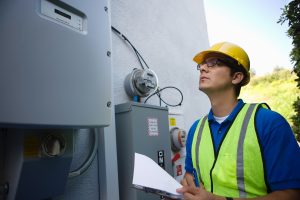 Net metering is a billing mechanism that allows electric utility customers who generate some of their own power using renewable energy systems, such as solar panels, to be credited with any excess electricity it provides back to the grid. Excess energy is deducted from the customer’s monthly bill or credited to a future bill within the same calendar year. Learn More.
Net metering is a billing mechanism that allows electric utility customers who generate some of their own power using renewable energy systems, such as solar panels, to be credited with any excess electricity it provides back to the grid. Excess energy is deducted from the customer’s monthly bill or credited to a future bill within the same calendar year. Learn More.
Section 366.91, Florida Statute
Interconnection and Net Metering of Customer-Owned Renewable Energy Generation
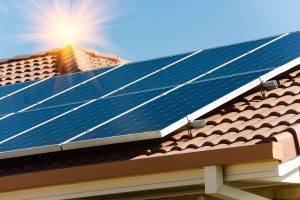 The purpose of this rule is to promote the development of small customer-owned renewable generation, particularly solar and wind energy systems; diversify the types of fuel used to generate electricity in Florida; lessen Florida’s dependence on fossil fuels for the production of electricity; minimize the volatility of fuel costs; encourage investment in the state; improve environmental conditions; and, at the same time, minimize costs of power supply to investor-owned utilities and their customers. Learn More.
The purpose of this rule is to promote the development of small customer-owned renewable generation, particularly solar and wind energy systems; diversify the types of fuel used to generate electricity in Florida; lessen Florida’s dependence on fossil fuels for the production of electricity; minimize the volatility of fuel costs; encourage investment in the state; improve environmental conditions; and, at the same time, minimize costs of power supply to investor-owned utilities and their customers. Learn More.
Rule: 25-6.065, Florida Administrative Code
Property Assessed Clean Energy Enabling Legislation
Local governments are enabled to establish financing programs for energy efficiency and hurricane hardening improvements.
Section 163.08, Florida Statutes
Florida Energy Efficiency and Conservation Act
Establishes goals for electric utility energy conservation and demand side management. Learn More.
Section 366.80, Florida Statutes
Florida Building Energy-Efficiency Ratings Act of 1993
Florida Statutes Section 12. Part XI of chapter 553 provides a statewide uniform system for rating the energy efficiency of buildings. Learn More.
Solar Energy Standards and Certification Program
Florida statute directs the Florida Solar Energy Center® to establish standards and system certification of solar energy systems manufactured or solar in Florida; allows licensed professional engineer to certify systems. Learn More.
Section 377.705, Florida Statutes
Solar Contractor Licensing
Establishes contractor licensing category for solar energy systems, including solar thermal and photovoltaic; exempts solar contractors from specific subcontracting requirements.
Chapter 489, Florida Statutes
Section 489.105(o)
(o) “Solar contractor” means a contractor whose services consist of the installation, alteration, repair, maintenance, relocation, or replacement of solar panels for potable solar water heating systems, swimming pool solar heating systems, and photovoltaic systems and any appurtenances, apparatus, or equipment used in connection therewith, whether public, private, or otherwise, regardless of use. A contractor, certified or registered pursuant to this chapter, is not required to become a certified or registered solar contractor or to contract with a solar contractor in order to provide services enumerated in this paragraph that are within the scope of the services such contractors may render under this part.
489.113(f) (f) A solar contractor shall not be required to subcontract minor, as defined by board rule, electrical, mechanical, plumbing, or roofing work so long as that work is within the scope of the license held by the solar contractor and where such work exclusively pertains to the installation of residential solar energy equipment as defined by rules of the board adopted in conjunction with the Electrical Contracting Licensing Board.
Educational Facilities
 New educational facilities should incorporate low-energy use features and solar hot water, renovations should retain some natural ventilation, and if a swimming pool needs to be heated, it should be done so by a waste heat recovery system or a solar energy system. Learn More.
New educational facilities should incorporate low-energy use features and solar hot water, renovations should retain some natural ventilation, and if a swimming pool needs to be heated, it should be done so by a waste heat recovery system or a solar energy system. Learn More.
Section 1013.44, Florida Statutes
Electric Vehicle Charging Stations
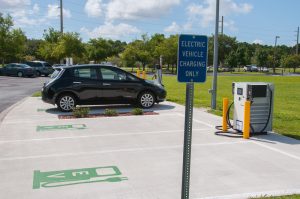 Providers of electric vehicle charging to the public are exempt from the definition of retail sale of electricity, and non-Plug-in Electric Vehicles (PEV) are prohibited from using a designated EV charging parking space.
Providers of electric vehicle charging to the public are exempt from the definition of retail sale of electricity, and non-Plug-in Electric Vehicles (PEV) are prohibited from using a designated EV charging parking space.
Electric vehicle charging stations.—
(1) The provision of electric vehicle charging to the public by a nonutility is not the retail sale of electricity for the purposes of this chapter. The rates, terms, and conditions of electric vehicle charging services by a nonutility are not subject to regulation under this chapter. This section does not affect the ability of individuals, businesses, or governmental entities to acquire, install, or use an electric vehicle charger for their own vehicles.
(2) The Department of Agriculture and Consumer Services shall adopt rules to provide definitions, methods of sale, labeling requirements, and price-posting requirements for electric vehicle charging stations to allow for consistency for consumers and the industry.
(3)(a) It is unlawful for a person to stop, stand, or park a vehicle that is not capable of using an electrical recharging station within any parking space specifically designated for charging an electric vehicle.
(b) If a law enforcement officer finds a motor vehicle in violation of this subsection, the officer or specialist shall charge the operator or other person in charge of the vehicle in violation with a noncriminal traffic infraction, punishable as provided in s. 316.008(4) or s. 318.18.
Section 366.94, Florida Statutes
For more information about Energy Policy in Florida, contact: Colleen Kettles, 321-638-1004, ckettles@fsec.ucf.edu.

